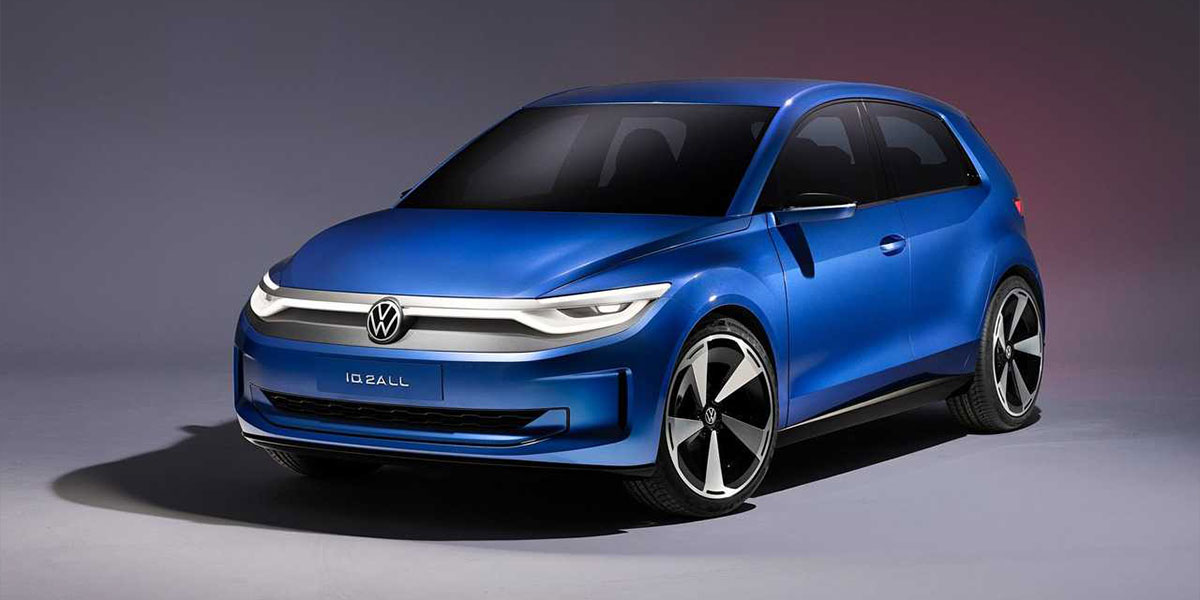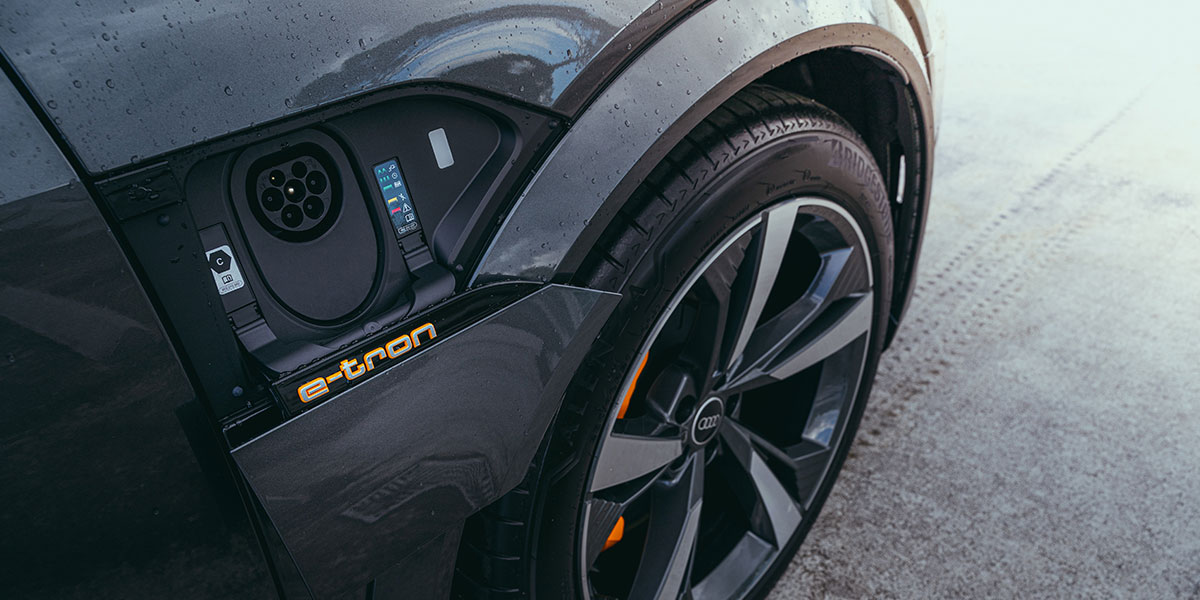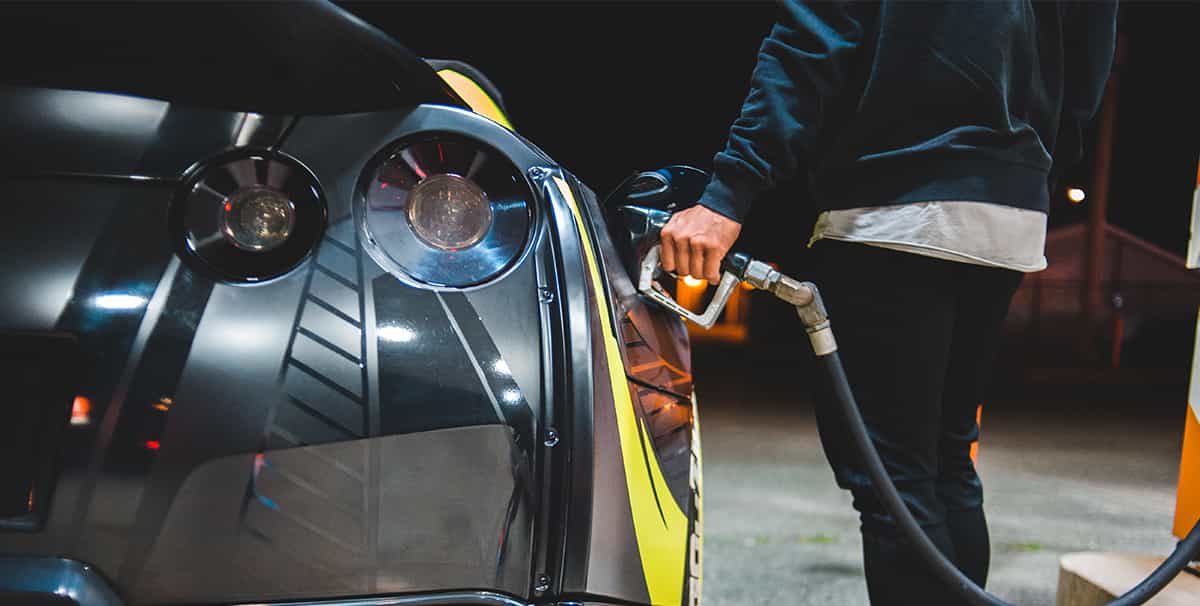Volkswagen have long been at the forefront of electric motoring, and the Volkswagen ID 2 looks set to further establish that reputation.
In 2021, the ill-fated ID.Life was launched at the Munich Motor Show, with the aims of making this model an affordable EV sitting below the ID.3. However, the challenges of manufacturing an economical electric vehicle proved too vast, with VW COO Thomas Schäfer abandoning the concept within the first few days as chief brand manager.
Enter the Volkswagen ID 2, with a release date of 2025. It’s being positioned as a competitor to other affordable electric vehicles like the Peugeot e-208 and the Vauxhall Corsa Electric. Despite the two year wait for the ID 2, Volkswagen have confirmed certain technical and design aspects for the vehicle. Read on to find out more…
What can we expect from the Volkswagen ID 2?
Efficiency and affordability are the key pillars for the ID 2, which is designed as ‘an homage to the Beetle, Golf and Polo’. The car is set to have a range of up to 280 miles, all for the affordable price tag of £22,000.
Much like the VW ID.3, the ID 2 is built on the principle of the company’s ‘Modular Electric Drive Matrix’ (MEB), a project designed to deliver smaller, economical electric vehicles by shifting the vehicular layout, design and power.
Price
Where the ID.Life concept first promised an EV priced below €22,000 (or £17,500), this price has since crept up somewhat for the new VW ID 2 to €25,000 (£22,000).
That said, the car still looks to be one of the cheapest electric cars on the market, undercutting rivals like the Renault Zoe E-Tech and Fiat 500 Electric.
Design
At 4,050mm long, 1812mm wide, and 1530mm high, the ID 2 is slightly smaller than the enduringly popular Polo – but the two could very easily be mistaken in looks. No doubt this is a deliberate design choice, given that the ID 2 will be pitched to mainstream motorists (it’s notably less futuristic in its design than the canned ID.Life).
The car’s small size doesn’t sacrifice practicality. In fact, Volkswagen themselves emphasise that the ID 2 will be as spacious as a Golf but as affordable as a Polo. The boot can carry up to 1330 litres of luggage when the rear seats are dropped down, or 440 litres with them in use. The front passenger seat also folds down to provide a 2.20 metre load area.
The interior design is clean. A 10.9-inch digital instrument panel combines with a 12.9-inch infotainment system. Unlike the ID.3, however, there are a number of manual buttons and switches in place, including for volume control and the climate control system. The touch sliders on the steering wheel have also been replaced by rotating thumbwheels and four buttons for maximum control. The ID.3 has been repeatedly criticised for its overly responsive touch-sensitive setup, so the return of physical control systems is very welcome.
The gear selector has also moved from the ID.3’s dash-integrated rocker switch to a stalk mounted on the steering column. There’s also a manual dial controller between the two front seats that allows the driver to switch between drive modes.
Performance
Efficiency is the central focus for the Volkswagen ID 2. However, it’s still nippy enough, with 223bhp and an acceleration of up to 62mph in less than 7.0 seconds. 280 miles is the advertised range, with a DC rapid charger topping the vehicle up from 10 to 80% battery in just 20 minutes. The battery pack will come in two sizes of 38kWh and 56kWh, with these figures most likely reflecting the larger pack’s performance and power capacity.
Finance your next electric vehicle with My Car Credit
Electric vehicles are a growing market and a vital part of the UK government’s Net Zero Strategy. If you’re looking to make the shift to an electric car, it might be time to use a car loan approval calculator. Alternatively, if you simply have questions around car finance, you can get in contact with one of our friendly team members by emailing enquiries@mycarcredit.co.uk.
Rates from 9.9% APR. Representative APR 12.4%
Evolution Funding Ltd T/A My Car Credit
Require more help?
Got a question you can’t find the answer to, or need some advice and guidance around taking out car finance? Our Car Credit Specialists are friendly, experienced, and here to help so get in touch today!





